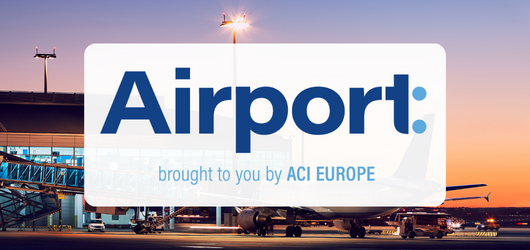OPEN LETTER: A competitive and resilient Europe requires a stronger EU transport budget
 5 February 2025
5 February 2025
Europe’s transport sector is the backbone of the EU internal market and outreach to the world. A strong sector is a prerequisite for building a competitive, net-zero and resilient Europe.
Europe’s transport sector strongly urges the Member States and the Commission to preserve and strengthen a solid dedicated European transport funding instrument under the future EU budget. The European coordination of infrastructure across Europe is more than ever crucial. It is the only guarantee for safeguarding the smooth functioning of the EU internal market, promoting Europe’s competitiveness and cohesion, and bolstering its resilience and military preparedness. As such, the transport sector is very concerned about the Commission’s plans to redirect a large majority of the European transport funding towards National Single Plans and asks the General Affairs and Finance Ministers of the Member States to give a strong signal towards the Commission in favour of preserving a solid dedicated European transport funding instrument.
Jacques Delors emphasised the essential role of European networks and connectivity already in his 1993 white paper on “Growth, Competitiveness and Employment”, highlighting their contribution to strengthening our economy and creating jobs. European policymakers ever since have been developing a trans-European transport network policy, acknowledging the necessity of a dedicated EU funding instrument to ensure its completion. More recently, the Mario Draghi and Enrico Letta reports reaffirm this as a crucial policy priority, underscoring how a well-functioning European transport network is essential to drive economic growth, job creation and social and regional cohesion. Instead of turning to an approach where national priorities may prevail, now it is ever more crucial for Europe to keep course on a European coordinated and managed investment instrument. That is the only way to achieve a well-integrated and interconnected transport network across the Union, to the benefit of Europe’s economy, society and security.
In fact, a robust European transport network is of strategic importance in responding to Europe’s current challenges. Only with strong and state-of-the-art transport infrastructure at its core, will Europe be able to ramp up its military mobility, strengthen its industrial competitiveness and economic, social and territorial cohesion, ensure its supply of critical raw materials, and safeguard its supply chain sovereignty. With rising geopolitical tensions and ongoing climate change, it must be Europe’s top priority to strengthen and adapt our infrastructure, address bottlenecks and missing links, and optimise its connectivity and capacity. Transport is the backbone and enabler of the EU internal market, so if Europe is to be a leader in the shift to a net-zero industry and society, it needs to provide a competitive and efficient transport network to link the current and new production sites with their markets.
Especially in uncertain times, Europe cannot afford to go in the direction of less connectivity, less internal cohesion and less Europe. A European approach offers added value by harmonising efforts and pooling financial resources, achieving outcomes that an individual national approach alone cannot effectively deliver. The transport sector supports the shift to an EU budget that is more flexible and agile, yet requires a long-term strategic and stable investment planning with centralised coordination at European level if it is to properly function. The transport sector therefore urges the Member States and the Commission to choose for an approach that strengthens Europe, to preserve a strong and centrally coordinated dedicated European transport funding instrument that prioritises investments of high European added value, and to refrain from jeopardising the future and competitiveness of Europe’s transport network, which is fundamental to achieve Europe’s priorities.
## ENDS ##



